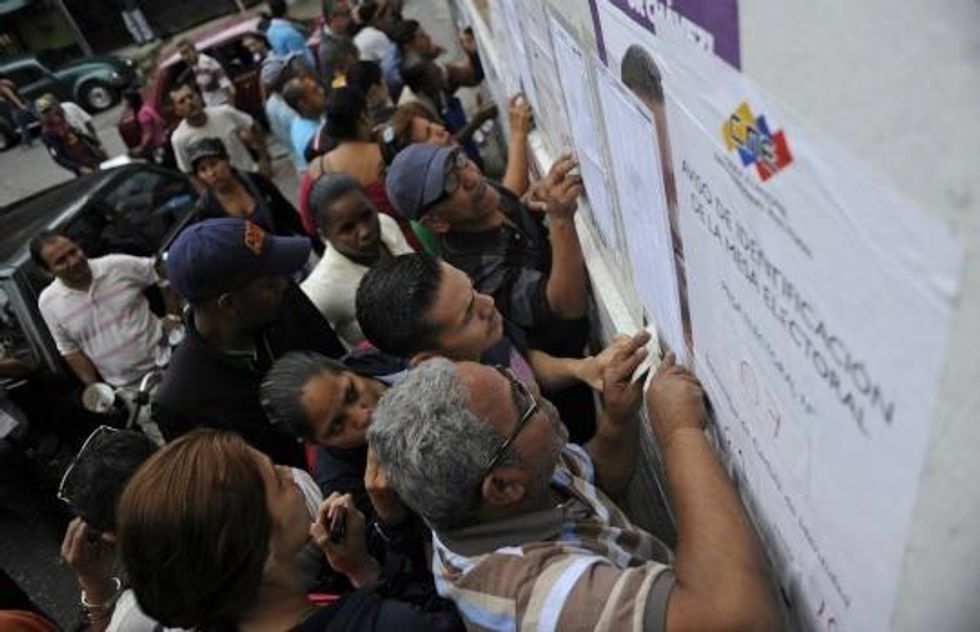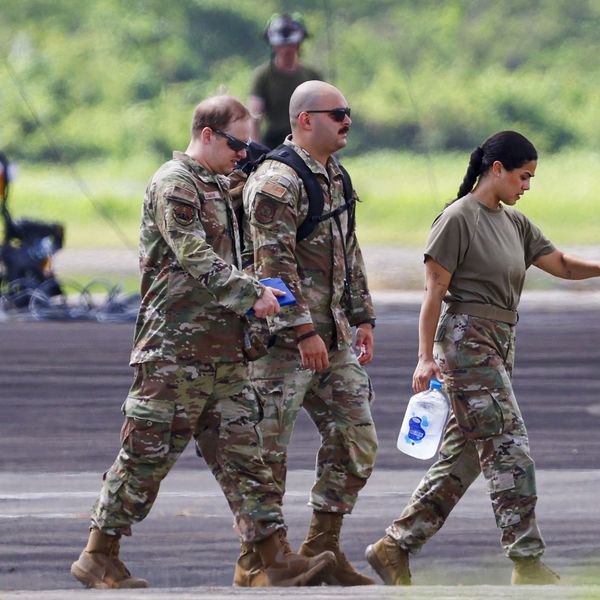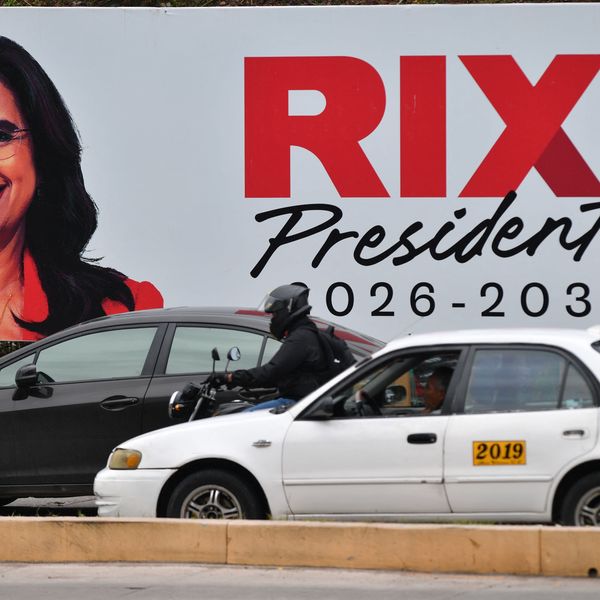Hugo Chavez Defies Doubters As He Wins A New Term
Turnout, Tensions High as Venezuelans Head to the Polls

Venezuelans went to the polls on Sunday bringing an end to a vibrant presidential race between the 16 year presidency of Hugo Chavez and his challenger Henrique Capriles, a lawyer and state governor proposing vast deregulation and privatization of the country's economy.
Chavez has maintained, at times, a substantial lead in polls, but Capriles allegedly narrowed the margin towards the end of the race. Polls have varied greatly throughout the race.
Supporters swarmed to each respective candidates rallies last week, showing both sides with a mobilized voter base. In a Capriles rally in Caracas last night, supporters banged pots and pans and chanted slogans. During Chavez's final rally Thursday in Caracas, he shouted to the crowd of 3 million supporters: "We're going to give the bourgeoisie a beating!"
Miguel Tinker Salas, professor of history and Latin American studies at Pomona College, told the Institute for Public Accuracy: "The outcome of Venezuela's election on Sunday, October 7 will not only determine who governs Venezuela for the next six years but also who controls the most important proven oil deposits in the world. Regionally, the Chavez election in 1998 became the first of many left electoral gains in Latin America including Brazil, Uruguay, Argentina, Bolivia and Ecuador. Therefore, the outcome of these elections will reverberate throughout Latin America, Washington, Beijing and other world capitals."
The Center for Economic and Policy Research is providing a live blog of the elections here.
* * *
An Urgent Message From Our Co-Founder
Dear Common Dreams reader, The U.S. is on a fast track to authoritarianism like nothing I've ever seen. Meanwhile, corporate news outlets are utterly capitulating to Trump, twisting their coverage to avoid drawing his ire while lining up to stuff cash in his pockets. That's why I believe that Common Dreams is doing the best and most consequential reporting that we've ever done. Our small but mighty team is a progressive reporting powerhouse, covering the news every day that the corporate media never will. Our mission has always been simple: To inform. To inspire. And to ignite change for the common good. Now here's the key piece that I want all our readers to understand: None of this would be possible without your financial support. That's not just some fundraising cliche. It's the absolute and literal truth. We don't accept corporate advertising and never will. We don't have a paywall because we don't think people should be blocked from critical news based on their ability to pay. Everything we do is funded by the donations of readers like you. Will you donate now to help power the nonprofit, independent reporting of Common Dreams? Thank you for being a vital member of our community. Together, we can keep independent journalism alive when it’s needed most. - Craig Brown, Co-founder |

Venezuelans went to the polls on Sunday bringing an end to a vibrant presidential race between the 16 year presidency of Hugo Chavez and his challenger Henrique Capriles, a lawyer and state governor proposing vast deregulation and privatization of the country's economy.
Chavez has maintained, at times, a substantial lead in polls, but Capriles allegedly narrowed the margin towards the end of the race. Polls have varied greatly throughout the race.
Supporters swarmed to each respective candidates rallies last week, showing both sides with a mobilized voter base. In a Capriles rally in Caracas last night, supporters banged pots and pans and chanted slogans. During Chavez's final rally Thursday in Caracas, he shouted to the crowd of 3 million supporters: "We're going to give the bourgeoisie a beating!"
Miguel Tinker Salas, professor of history and Latin American studies at Pomona College, told the Institute for Public Accuracy: "The outcome of Venezuela's election on Sunday, October 7 will not only determine who governs Venezuela for the next six years but also who controls the most important proven oil deposits in the world. Regionally, the Chavez election in 1998 became the first of many left electoral gains in Latin America including Brazil, Uruguay, Argentina, Bolivia and Ecuador. Therefore, the outcome of these elections will reverberate throughout Latin America, Washington, Beijing and other world capitals."
The Center for Economic and Policy Research is providing a live blog of the elections here.
* * *

Venezuelans went to the polls on Sunday bringing an end to a vibrant presidential race between the 16 year presidency of Hugo Chavez and his challenger Henrique Capriles, a lawyer and state governor proposing vast deregulation and privatization of the country's economy.
Chavez has maintained, at times, a substantial lead in polls, but Capriles allegedly narrowed the margin towards the end of the race. Polls have varied greatly throughout the race.
Supporters swarmed to each respective candidates rallies last week, showing both sides with a mobilized voter base. In a Capriles rally in Caracas last night, supporters banged pots and pans and chanted slogans. During Chavez's final rally Thursday in Caracas, he shouted to the crowd of 3 million supporters: "We're going to give the bourgeoisie a beating!"
Miguel Tinker Salas, professor of history and Latin American studies at Pomona College, told the Institute for Public Accuracy: "The outcome of Venezuela's election on Sunday, October 7 will not only determine who governs Venezuela for the next six years but also who controls the most important proven oil deposits in the world. Regionally, the Chavez election in 1998 became the first of many left electoral gains in Latin America including Brazil, Uruguay, Argentina, Bolivia and Ecuador. Therefore, the outcome of these elections will reverberate throughout Latin America, Washington, Beijing and other world capitals."
The Center for Economic and Policy Research is providing a live blog of the elections here.
* * *

